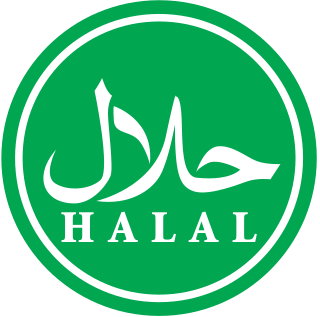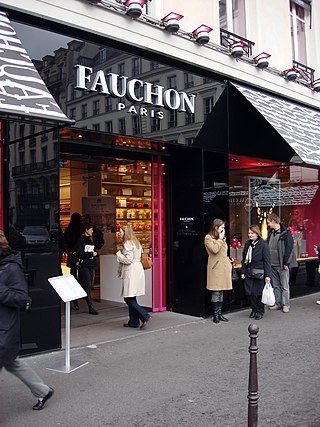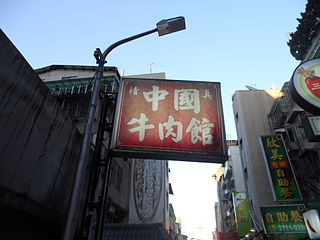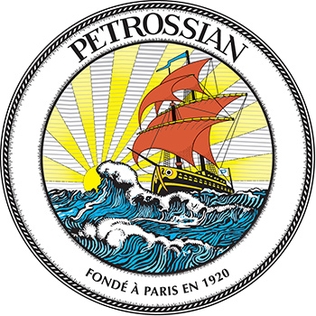Related Research Articles

French cuisine is the cooking traditions and practices from France. In the 14th century, Guillaume Tirel, a court chef known as "Taillevent", wrote Le Viandier, one of the earliest recipe collections of medieval France. In the 17th century, chefs François Pierre La Varenne and Marie-Antoine Carême spearheaded movements that shifted French cooking away from its foreign influences and developed France's own indigenous style.

A convenience store, bodega, convenience shop, corner store or corner shop is a small retail store that stocks a range of everyday items such as tea, coffee, groceries, fruits, vegetables, snacks, confectionery, soft drinks, ice creams, tobacco products, lottery tickets, over-the-counter drugs, toiletries, newspapers and magazines. In some jurisdictions, convenience stores are licensed to sell alcoholic drinks, although many jurisdictions limit such beverages to those with relatively low alcohol content, like beer and wine. The stores may also offer money order and wire transfer services, along with the use of a fax machine or photocopier for a small per-copy cost. Some also sell tickets or recharge smart cards, e.g. OPUS cards in Montreal or include a small deli. They differ from general stores and village shops in that they are not in a rural location and are used as a convenient supplement to larger stores.
Islamic dietary laws are laws that Muslims follow in their diet. Islamic jurisprudence specifies which foods are halal and which are haram. The dietary laws are found in the Quran, the holy book of Islam, as well as in collections of traditions attributed to the Islamic prophet Muhammad.

Foie gras ; French:[fwaɡʁɑ], ) is a specialty food product made of the liver of a duck or goose. According to French law, foie gras is defined as the liver of a duck or goose fattened by gavage.

Halal is an Arabic word that translates to 'permissible' in English. In the Quran, the term halal is contrasted with the term haram. This binary opposition was elaborated into a more complex classification known as "the five decisions": mandatory, recommended, neutral, reprehensible and forbidden. Islamic jurists disagree on whether the term halal covers the first two or the first four of these categories. In recent times, Islamic movements seeking to mobilize the masses and authors writing for a popular audience have emphasized the simpler distinction of halal and haram.

Sarlat-la-Canéda, commonly known as Sarlat, is a commune in the southwestern French department of Dordogne, a part of Nouvelle-Aquitaine. Sarlat and La Canéda were distinct towns until merged into one commune in 1965.

Beur, or alternatively rebeu, is a colloquial term, sometimes considered pejorative, in French to designate European-born people whose parents or grandparents are immigrants from the Maghreb. The equivalent term for a female beur is a beurette. However, the term beurette is condemned and criticized by several anti-racist organizations because of the xenophobic and degrading connotation that this word has taken on over the decades . The term rebeu is neither applicable to females nor does it have a female version.

Fauchon is a French gourmet food and delicatessen company that was founded in 1886 in Paris, France. Fauchon is considered a major reference in contemporary French gourmet foods, and it had 81 outlets in operation around the world as of 2019.

Beef Wellington is a steak dish of English origin, made out of fillet steak coated with pâté and duxelles, wrapped in puff pastry, then baked. Some recipes include wrapping the coated meat in a crêpe or dry-cured ham to retain the moisture and prevent it from making the pastry soggy.

Sheetz, Inc. is an American chain of convenience stores and coffee shops owned by the Sheetz family. The stores sell custom food, beverages and convenience store items, with all locations having offered 24/7 service since the 1980s. Nearly all of them sell gasoline; a few locations are full-scale truck stops, including showers and a laundromat. Sheetz's headquarters is in Altoona, Pennsylvania, with their corporate offices located there as well, with over 700 stores located in Central and Western Pennsylvania, West Virginia, Maryland, Ohio, Virginia, and North Carolina, with plans to expand into Michigan.
Beurger King Muslim was a French halal fast-food restaurant launched in July 2005. After widespread media attention when it opened, it permanently closed after less than two years of operation in 2007. The restaurant mimicked American fast food restaurants. It was in the suburb of Clichy-sous-Bois, Paris, France, offering hamburgers, French fries, sundaes, cola and doughnuts. The beef and chicken used in their burgers were halal, meaning they are made with meat slaughtered according to Islamic dietary laws. It was located in the eastern Paris suburb of Clichy-sous-Bois, where many locals are first- or second-generation Muslim immigrants from former French colonies.

Farm Sanctuary is an American animal protection organization, founded in 1986 as an advocate for farmed animals. It was America's first shelter for farmed animals. It promotes laws and policies that support animal welfare, animal protection, and veganism through rescue, education, and advocacy. Farm Sanctuary houses over 800 cows, chickens, ducks, geese, turkeys, pigs, sheep, and goats at a 300+ acre animal sanctuary in Watkins Glen, New York and more than 100 animals at its location in Acton, California, near Los Angeles.

The production of foie gras involves the controversial force-feeding of birds with more food than they would eat in the wild, and more than they would voluntarily eat domestically. The feed, usually corn boiled with fat, deposits large amounts of fat in the liver, thereby producing the fatty consistency sought by some gastronomes.

Halal tourism is a subcategory of tourism which is geared towards Muslim families who abide by rules of Islam. The hotels in such destinations do not serve alcohol, have separate swimming pools and spa facilities for men and women, serve only halal foods, and have prayer facilities in-room and in a common hall. Travel agents, while designing travel packages for this, follow guidelines of halal. Malaysia, Turkey and many more countries offer facilities in accordance with the religious beliefs of Muslim tourists in order to attract more customers. Currently, there exist no internationally recognized standards on Halal tourism.
Michel Montignac was a French diet developer who originally created the Montignac diet to help himself lose weight, which he based on research that focuses on the glycemic index of foods, which affects the amount of glucose delivered to the blood after eating. The diet, which distinguishes between good and bad carbohydrates, became the basis for best-selling books and a chain of restaurants and stores promoting his diet regimen and was one of the theoretical predecessors of the South Beach Diet.
The California foie gras law or Senate Bill 1520 is a California State statute that prohibits the "force feed[ing of] a bird for the purpose of enlarging the bird's liver beyond normal size" as well as the sale of products that are a result of this process (§ 25982). This outlawed the traditional method of producing foie gras in California. The law was enacted in 2004 and went into effect on July 1, 2012. The law has been challenged repeatedly since its enactment. The ninth circuit in 2022 upheld a lower court’s 2020 ruling, which allowed residents to purchase foie gras for their individual use from out-of-state retailers.

D’Artagnan (D'Artagnan, Inc., also known as D'Artagnan Foods) is a food seller and manufacturer of beef, pork, lamb, veal, pâtés, sausages, smoked and cured charcuterie, all-natural and organic poultry, game, free-range meat, foie gras, wild mushrooms, and truffles.

Petrossian is a French private company known for a wide variety of products but mainly fine spices, caviar and smoked seafood products. Founded in 1920 by Armenian immigrants to France it currently operates 7 (2023) retail locations in New York City, Los Angeles, Las Vegas as well as in Paris and Brussels.
Halal meat is meat of animal slaughtered according to Quran and Sunnah and thus permitted for consumption by Muslims.

Navarre is a restaurant in Portland, Oregon.
References
- The “beurgeois”: French citizens till the contrary is proven, by Ghania Khelifi.